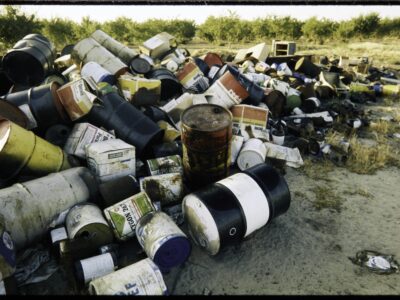TSCA Reform: That’s A Good Thing, Right?
Reform of the federal chemicals statute, the Toxic Substances Control Act (TSCA), is in the news again. It got me wondering, are we are better off with the devil we know?
In a legislative era characterized by harsh partisanship and excruciating deadlocks, there are signs that TSCA reform could be a rare example of cooperation across the parties. Senators Vitter (R-Louisiana) and Senator Udall (D-New Mexico) appear poised to move the latest iteration through the Senate. The Frank R. Lautenberg Chemical Safety for the 21st Century Act, named for the late New Jersey Senator who jump-started TSCA reform, is expected to be publically released after a March 18 Senate hearing. But it has already caused disruption within the Democratic caucus and among environmental groups. The New York Times reported on Senator Udall’s uptick in campaign contributions from the chemical industry’s trade association, while Senator Boxer of California is quoted as observing “To me it looks like the chemical industry itself is writing this bill.” The bill’s state preemption provisions caused California Attorney General’s office to protest the “excessive displacement of states” in chemical regulation.
TSCA has been the subject of constant criticism from all sides for decades now, and perhaps an end is in sight. For some environmental advocates TSCA reform has consistently been a central goal, excruciatingly out of reach at the federal level. It is understandable that they would want to capitalize on the opportunity to achieve that reform now that Republicans are finally on board. And over the last six or seven years certain industry players have joined in the call for “modernization” of TSCA, just about the same time as California and other states began innovative chemicals programs of their own. So the pieces may be in place for change.
The working draft of the bill is not yet public, so we’ll have to wait to see how much of an improvement it actually is. It is worth noting that rhetoric over court decisions regarding EPA’s testing authorities and its regulatory authority to restrict or phase out chemicals has exaggerated the problems with the existing statute. As I have written before, there is cause for doubt about whether TSCA’s celebrated problems have more to do with “underfunding and timid management than with statutory language and court decisions.” Reform that ignores these factors while eviscerating state programs could be a step backwards.







Reader Comments